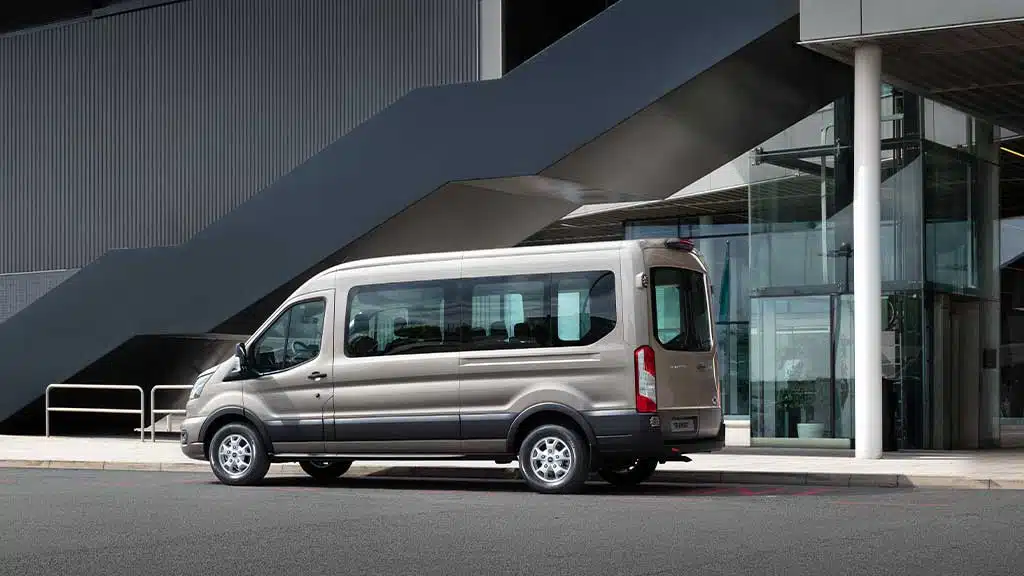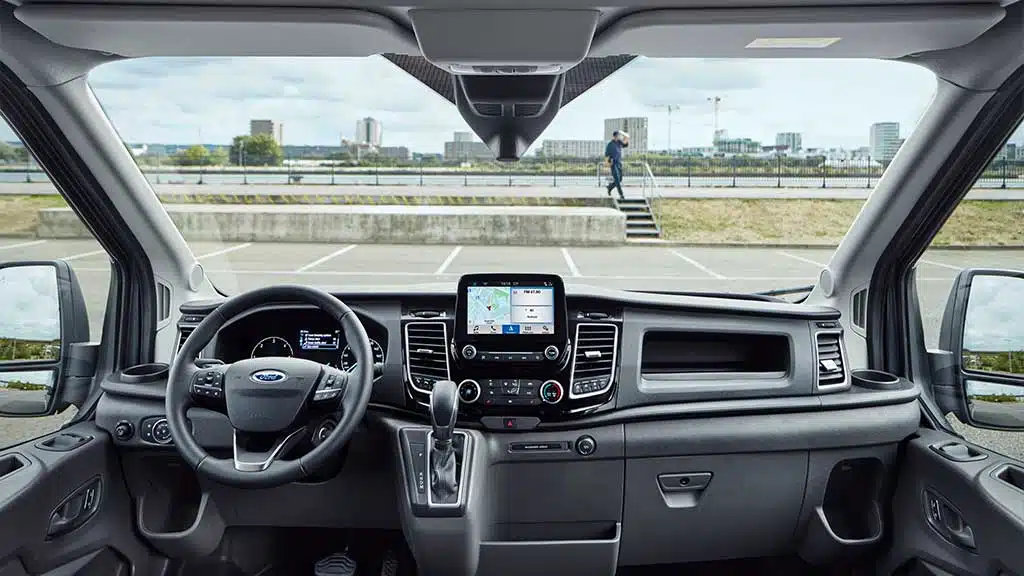Understanding the differentiation between business and commuting miles is crucial for self-employed individuals or those who must adhere to specific guidelines outlined by the IRS. In this article, we will explore the intricacies of business miles vs commuting miles, shedding light on their distinctions and how these differences can impact financial and tax decisions.
Defining Business Miles and Commuting Miles
Before delving into the complexities, it’s important to establish what constitutes business and commuting miles.
Business Miles: These are the mileage accumulated while actively engaged in activities contributing to your business operations. For example, if you’re a sales representative traveling to meet potential clients, any distance covered during that journey falls under the category of business miles. Likewise, if you’re a freelance designer driving to a client’s office to discuss a project, any mileage logged for that trip is considered business-related. The pivotal element to consider revolves around the fact that travel is essential to your professional duties.
Commuting Miles: When calculating mileage, it’s important to note that commuting miles refer to the distance you cover during your daily journey from home to your primary workplace. These are the everyday travels required to reach your office, store, or any location where you regularly perform your job. Commuting miles are classified as “getting to work” miles. They cannot be claimed as tax-deductible by the IRS since commuting is a personal choice rather than a direct responsibility related to your work.
Understanding this distinction between business miles vs commuting miles holds utmost significance as it is a foundation for determining which type of mileage can provide tax advantages and which are considered personal expenses. How these miles are categorized can impact your tax deductions and financial choices. As we explore the topic of commuting miles vs business miles on a more profound level, it’s important to remember that this fundamental distinction serves as the foundation for several guidelines established by the IRS and can have significant implications for various aspects of your career.
Self-Employed Individuals: Navigating the Distinctions

Determining the distinction between business miles vs commuting miles IRS can become hazy for self-employed individuals. Due to their ability to work from home or have unpredictable schedules, identifying whether a trip falls under a business or commuting mile requires careful consideration and effort. This is where having a clear comprehension of the guidelines provided by the IRS becomes crucial.
Flexibility and Complexity: The self-employed often enjoy a level of flexibility that traditional employees do not possess, which introduces an element of complexity when discerning business miles and commuting miles. Many individuals who work for themselves conduct a significant portion of their tasks remotely, either in their home office or while traveling to meet various clients. This freedom poses challenges when it comes to drawing clear boundaries between types of travel.
For example, suppose you are a freelance writer primarily operating out of your home office but occasionally meeting with clients for brainstorming sessions. In such cases, categorizing your mileage can be quite intricate. Is traveling to the client’s meeting location considered a business mile? Or does it fall into the commuting category, as your home is your primary workplace?
Documenting Work-Related Travel:
Accurate record-keeping is crucial for self-employed individuals, particularly when categorizing miles. It’s essential to have meticulous documentation in place. Keeping thorough records of each trip’s purpose, destination, and how it relates to your business activities can make a difference. Utilizing mileage-tracking apps or software is highly recommended if you’re working for yourself, as they can simplify this process.
These tools often provide the option to classify each journey as business-related or personal and offer an organized method of storing travel-related information. Not only does such documentation help with tax deductions, but it also serves as considerable evidence if you were ever subjected to an IRS audit.
Differentiating between business miles vs commuting miles self-employed requires careful consideration of your work structure and travel patterns. Although self-employment comes with flexibility and advantages, it necessitates more diligence in accurately tracking and categorizing your travel. The initial step is to acknowledge the complexities that may blur the boundaries between these miles. The subsequent step involves using available resources and tools to ensure compliance with IRS guidelines and maximize potential tax benefits.
IRS Guidelines and Their Significance

The IRS has established specific criteria to distinguish between business miles vs commuting miles IRS. According to its definition, business miles encompass any travels undertaken within the scope of work activities such as meeting clients, attending business-related gatherings or appointments, or engaging in job-related errands. Alternatively, commuting miles refers to the journey from your dwelling to your main occupation.
It’s crucial to bear in mind that commuting miles are generally non-tax-deductible. Nonetheless, there are circumstances wherein commuting miles can morph into deductible expenses. For instance, the travel could be considered business miles if you possess a home office and commute to a client’s site rather than your primary workplace. It is always wise to seek advice from IRS guidelines or a tax expert for precise classification purposes.
Understanding Home Office Deductions:
A home office can change the nature of your commuting miles, potentially making them eligible for tax deductions. For self-employed individuals who use part of their home exclusively and regularly for business purposes, any travel they undertake from their home to meet clients or suppliers or engage in activities related to their business may be considered deductible. This is because, under these circumstances, the individual’s residence is deemed their primary place of business. Any travel from there to other locations associated with work becomes an extension of their professional responsibilities.
To avoid confusion regarding what classifies as business or commuting miles and ensure eligibility for tax deductions, it is essential to refer to the guidelines provided by the Internal Revenue Service (IRS). Due to the intricate nature of tax regulations involved, specifically with self-employment, individuals seeking professional advice are highly recommended. Consulting an expert will help ensure accurate interpretation and application of these guidelines based on individual circumstances.
Tax Implications: Business miles vs commuting Miles
It is vital to comprehend the tax ramifications of business miles compared to commuting, as it can influence your financial outcome. Business miles are typically eligible for tax deductions, allowing you to deduct a set amount for each mile traveled on business-related endeavors. Utilizing this deduction can lower your taxable income and alleviate your tax burden.

On the contrary, commuting miles are not eligible for tax deductions. This is because commuting is viewed as a personal expense since it pertains to the distance covered to reach your regular workplace. Nevertheless, if you are self-employed and conduct business activities or meet clients from your home office – which qualifies as your primary place of business – there may be potential deductibility associated with traveling from home.
Record-Keeping and Documentation
Proper record-keeping practices are of utmost importance in distinguishing between business miles vs commuting miles. The Internal Revenue Service (IRS) mandates the need for accurate documentation to substantiate your mileage claims. To track business miles, it is essential to maintain a log specifying the date, the reason for the trip, starting and ending points, and the total distance covered. This comprehensive record will serve as substantial proof if an audit occurs.
Typically, commuting miles are not considered deductible by the IRS. Nevertheless, certain circumstances can alter this position – if your commute forms part of a business trip or you have a qualifying home office setup – transforming the nature of your travel altogether. In these cases, meticulously keeping detailed records outlining the business purpose behind each commuter journey becomes crucial.
Technology and Tracking Mileage
In the modern era of technology, multiple tools and applications are available that can simplify the process of monitoring business and commuting mileage. These applications use GPS technology to accurately calculate the distance covered during your journeys, thereby facilitating the maintenance of precise records for tax purposes. Moreover, they can differentiate between personal trips and those conducted for professional reasons.
Efficiency and Accuracy:
Mileage tracking apps offer a degree of efficiency and accuracy that conventional manual techniques must match. By utilizing these apps, you can input the purpose of each trip, allowing the embedded GPS technology to handle everything else. The application meticulously keeps track of various elements, including distance traveled, route taken, date, and time. This comprehensive collection serves as an essential dataset for calculating tax deductions, concurrently acting as a valuable resource to assess travel patterns effectively while enabling informed decision-making regarding optimizing routes and minimizing travel duration.
![]()
In addition, these applications frequently offer features that enable you to classify each journey as either professional or personal. This feature allows for a clear distinction between the two types of mileage. Some applications go even further by allowing the export or printing of comprehensive reports. These reports can be incredibly handy during tax season or when dealing with an audit. By utilizing the capabilities of technology, you can streamline your mileage-tracking process and minimize the risk of inaccuracies. Additionally, this approach guarantees that well-organized records are easily accessible whenever necessary.
Seeking Professional Advice
When it comes to deciphering the complexities of business miles versus commuting miles, navigating this territory can be quite intricate. This is especially true when considering the various scenarios that may apply to your circumstances. However, fear is not! If you need assistance with categorizing your travel or want to optimize your tax deductions, enlist the guidance of a tax professional specializing in self-employment and small business taxes. By doing so, you will access tailored advice specifically geared toward your unique situation.
Expert Insights and Customized Solutions:
Tax professionals specializing in self-employment and small business taxes are undoubtedly well-acquainted with the intricacies of tax regulations regarding different forms of work-related travel. They possess a treasury of knowledge that enables them to provide priceless insights into accurately classifying your mileage expenses, discerning, and understanding IRS guidelines with precision, and identifying any potential deductions that might escape your attention while navigating through this complex terrain. These professionals boast an in-depth familiarity with tax laws and diligently monitor any modifications or amendments made thereof, which could significantly impact how you approach filing taxes on these matters.
When you seek professional advice, you invest in peace of mind. Tax laws’ complexity means that incorrectly interpreting them can result in costly consequences. By working with a tax professional, you equip yourself with the necessary knowledge and guidance to navigate the intricacies of commuting miles vs business miles. This enables you to focus more on expanding your self-employed venture and less on potential tax-related pitfalls.
In Conclusion
Being well-versed in the distinction between commuting miles vs business miles is vital for self-employed individuals looking to optimize their tax deductions. The guidelines put forth by the IRS play a crucial role in determining how these miles should be categorized and whether they are eligible for tax deductions. Keeping precise records, utilizing technology for tracking purposes, and seeking professional advice are all essential steps toward maximizing travel-related deductions. Regarding taxes and money matters, every single mile holds significance



























































